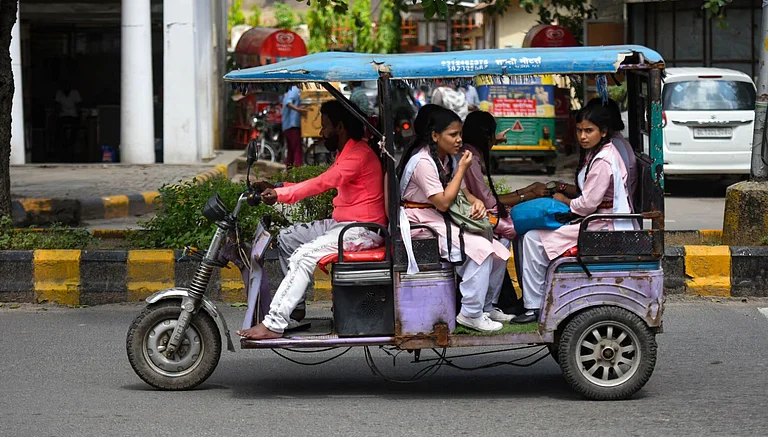While notifying that state government employees will from now on be able to join the RSS and attend its shakhas, the Chhattisgarh government, in the face of criticism, has informally added a caveat—that staff were expected to take part in only social and cultural activities. Perhaps finding it futile to maintain the fig leaf of the RSS being an apolitical organisation, especially after its stellar role in the last general elections, general administration secretary D.D. Singh told Outlook that the ban on government employees participating in political activities was still on.
While a livid Opposition raised the issue in the Rajya Sabha and demanded withdrawal of the notification, it is unlikely to cut much ice because Himachal Pradesh in ’04, and MP in ’06, had issued similar notifications; BJP-ruled Gujarat is expected to follow suit. Incidentally, the RSS first got on the list of prohibited organisations after the Gandhiji assassination and thereafter during the Emergency. It was again banned after the Babri Masjid demolition.
RSS national spokesman M.G. Vaidya puts up a vigorous defence of the notification. “We train citizens to lead a disciplined life and serve the nation and society in various fields, politics being just one of them,” he says, while emphasising on the difference between “allowed to join” and “asked to join”. Members, he claimed, are allowed to join any political party of their choice.
Congress leader Abhishek Manu Singhvi, however, finds no merit in Vaidya’s argument. “Irrespective of the political party in power, this has never been done in the last 70 years,” he says and fumes, “If it is allowed, it will be the beginning of the end of an independent, objective and non-political bureaucracy.”
There is a point of view though that the restriction on government servants is “really archaic”. That as citizens, they ought to enjoy political rights and, as in the case of the civil servants in the UK or the US, be free to join any political party, contribute, canvass or attend rallies etc as long as the activities do not interfere with their work.
Government servants in any case tend to toe the lines of the party in power, volunteered a political scientist on condition of anonymity. In states which have had Left parties in power for long periods, like West Bengal and Kerala, he argued, government employees and even policemen were politicised to a great extent, so what the BJP-ruled states are trying to do now does have a precedent.
Independent Rajya Sabha MP Rajeev Chandrasekhar concurs, “I don’t see any problem in a civil servant joining an organisation like the RSS. Unless the activities are seditious, anti-national or criminal, people should be free to join any organisation.”
In Chhattisgarh itself, there has been a mixed reaction. Former state finance commission chief Birendra Pandey, now expelled from the BJP, points out that the RSS had considerably weakened in the state in the last decade-and-a-half from a time when in Raipur alone it would hold as many as 100 shakhas every day (the number has declined to less than 10). The state government headed by Raman Singh, he claimed, was buying insurance for itself and currying favours with the RSS because its stock in the eyes of the prime minister had gone down.
While the debate rages, observers wonder if the bureaucracy itself is at a crossroads. Once the barriers break, it will be difficult to stem the tide and stop other ‘cultural’ organisations from enrolling state employees as members.
By Yashwant Dhote in Raipur and Mihir Srivastava in Delhi


























